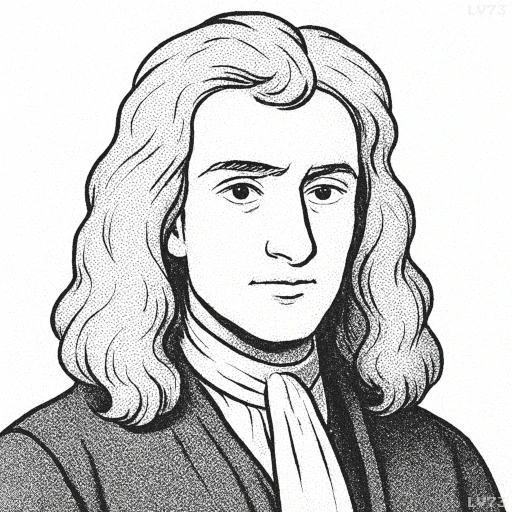“Opposite to godliness is atheism in profession, and idolatry in practice. Atheism is so senseless and odious to mankind, that it never had many professors.”

- January 4, 1643 – March 31, 1727
- Born in England (UK)
- Natural philosopher, mathematician, physicist, astronomer, theologian
table of contents
Quote
“Opposite to godliness is atheism in profession, and idolatry in practice. Atheism is so senseless and odious to mankind, that it never had many professors.”
Explanation
In this quote, Isaac Newton contrasts atheism and idolatry with godliness, expressing his belief that both atheism and idolatry represent extreme deviations from proper religious practice. Newton associates atheism with a rejection of godliness, seeing it as a senseless and odious belief system that is unnatural to human beings, and thus, according to him, it has never been widely adopted. He links atheism (the denial of God’s existence) with a lack of reason and moral order, while idolatry (the worship of false gods or images) is seen as an erroneous form of devotion, where people misplace their worship onto objects or deities other than the true God. For Newton, both atheism and idolatry represent forms of corruption—atheism through its denial of a creator, and idolatry through its distortion of worship.
Newton’s religious views were deeply intertwined with his scientific work. He believed that the laws of nature were clear evidence of a divine creator. To him, the world’s order, especially as revealed through his discoveries in mathematics and physics, pointed unequivocally to a higher power. His harsh view of atheism reflected the broader Christian perspective of his time, which saw belief in God as essential to understanding the universe and human morality. Despite being one of the most influential scientists in history, Newton was also a devout Christian, and his religious convictions played a central role in shaping his worldview.
In modern times, Newton’s statement about atheism being “senseless and odious” might be seen as reflecting the historical context in which he lived—a time when faith was widely considered essential to both intellectual and moral life. Today, the debate between atheism and theism continues to be a key point of discussion in philosophy, theology, and even science. Newton’s statement about atheism, while representative of his time, also serves as a reminder of how deeply faith and reason were intertwined for many thinkers of the Scientific Revolution. Newton’s assertion highlights the theological worldview that he believed was necessary to make sense of the order and purpose of the universe, a view that influenced the scientific development of his era.
Would you like to share your impressions or related stories about this quote in the comments section?



